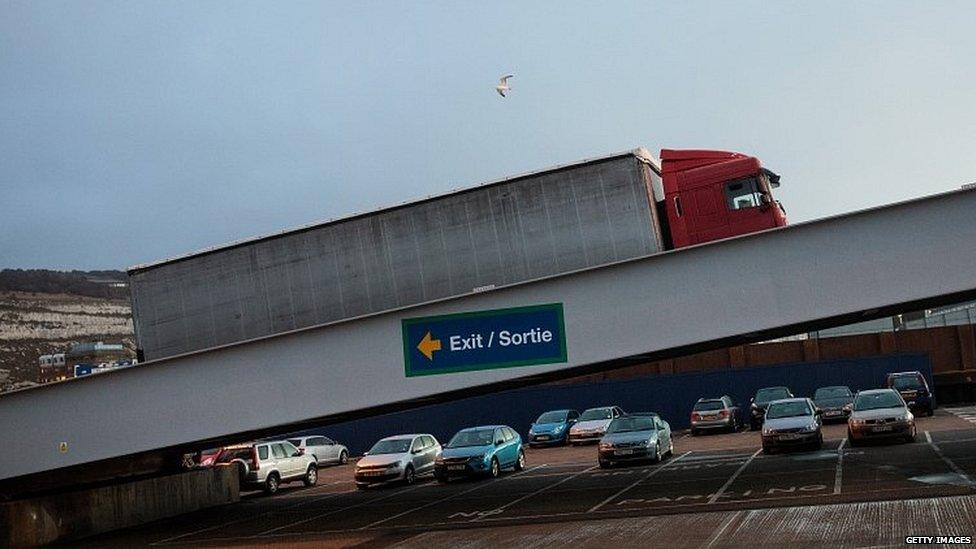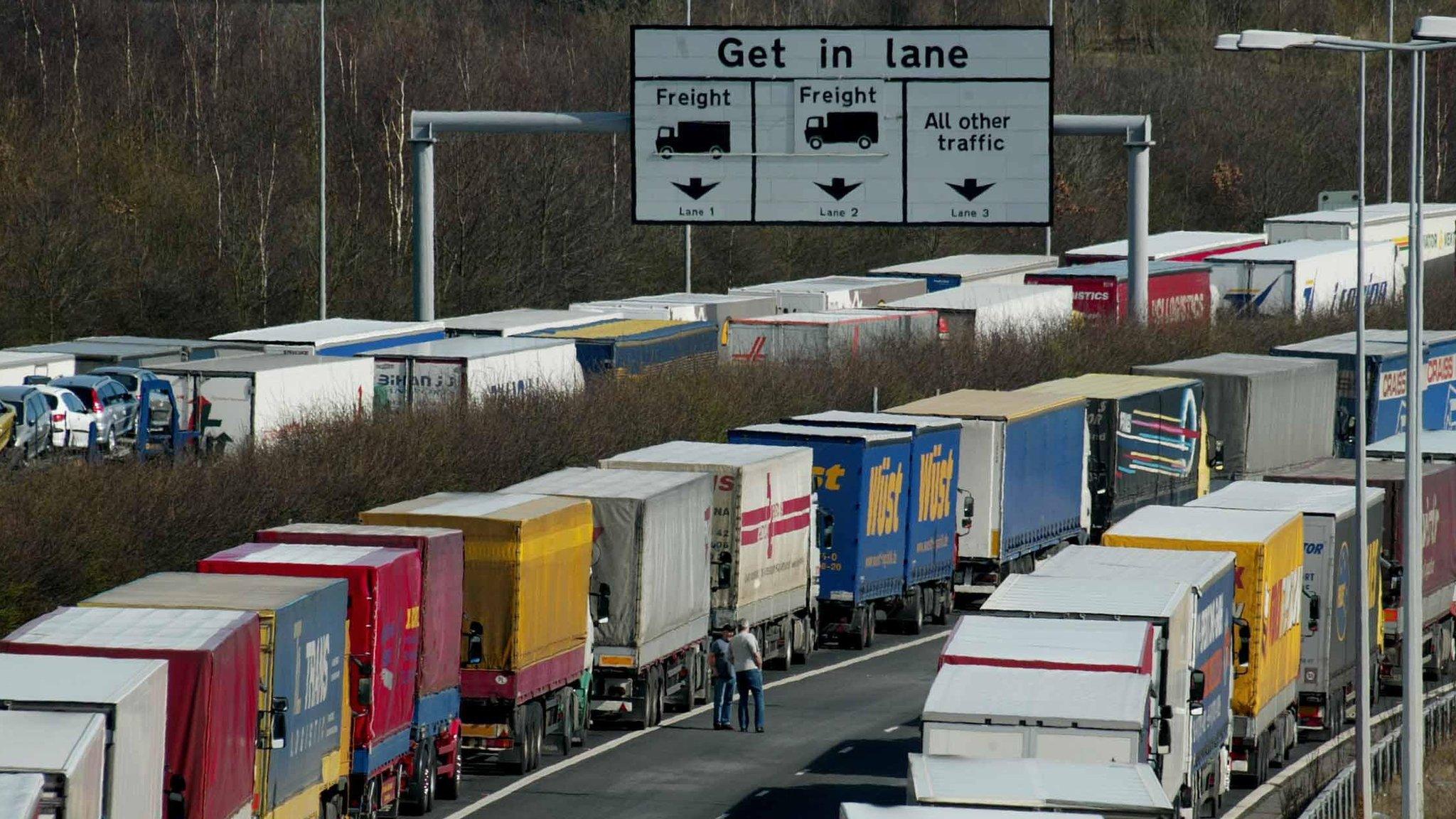Brexit: PM accused of plan to 'throw open' borders
- Published
- comments
Chris Grayling: No post-Brexit lorry checks at Dover
Theresa May has been accused of planning to "throw open" Britain's borders after Brexit, by a cross-party group of pro-European MPs.
It comes after Transport Secretary Chris Grayling said there won't be any border checks at Dover when Britain leaves the EU in March next year.
He said it would be "utterly unrealistic" to have checks and trade would be managed electronically.
The Open Britain group has written to the PM to demand clarification.
In their letter, the Labour, Lib Dem and Green MPs, who campaign against a "hard Brexit", say: "It is extraordinary that a government that says it aims to 'take back control' now admits it is not even going to try to control the transfer of goods across our borders, in the event we leave the customs union.
"This has major implications for our businesses, our infrastructure and our trade."
Such a plan would not avoid a hard border "because the EU would have to enforce checks on goods entering its common market", the MPs say.
And, in the event of no trade deal being reached with the EU, "it would be in breach of WTO rules to apply no tariffs on EU goods whilst continuing to apply tariffs on goods from outside the EU".
The MPs also call for the government to make its post-Brexit border plans public after Sky News reported, external that companies have been asked to sign non-disclosure agreements about briefings on the impact on freight traffic if there is no Brexit agreement as well as other possible scenarios.
The Department for Exiting the EU said while a trade deal was "by far and away the highest probability", it made sense to prepare for all possible outcomes.

More than 2.5 million lorries passed through Dover in 2017
The UK currently has a free-flowing border in Kent where lorries travelling within the EU do not complete customs declarations and passport checks are minimal.
Researchers estimate it takes an average of about two minutes for each vehicle at Dover to be processed.
There have been warnings that if additional customs checks are imposed after the UK leaves on 29 March 2019, it will add about 10 miles to the queues at peak times for every additional minute's worth of checks.
A study by Imperial College London earlier this week found that two extra minutes of checks on vehicles could more than triple the existing queues, potentially leading to motorway tailbacks up to 29 miles long.
But Mr Grayling told BBC One's Question Time it was "absolutely clear" that this "cannot happen".
"We will maintain a free flowing border at Dover - we will not impose checks in the port. We don't check lorries now - we're not going to be checking lorries in Dover in the future.
"The only reason we would have queues at the border is if we put in place restrictions that created those queues - we are not going to do that."
The government has said leaving the EU will allow the UK to take back control of its borders.
The UK is set to the leave the customs union, but ministers are hoping to negotiate a new customs partnership with the EU as part of a transition arrangement likely to last about two years after the UK's official exit from the union next March.
Mr Grayling said goods moved seamlessly across national borders elsewhere in the world and there was no reason this would not happen after Brexit.
"Go to our ports on the east coast that take goods from outside the European Union where goods... depart pretty much as soon as they arrive. That is what is going to happen.
"We will manage trade electronically. Trucks will move through the border without stopping. We will manage them electronically. In the way it happens between Canada and the US."
Labour said a new customs union with the EU was the only way to avoid "gridlock" at British ports.
"Chris Grayling let the cat out of the bag by exposing how unprepared the government are for leaving the EU," said shadow transport secretary Andy McDonald.
"The government said leaving the EU is about regaining control of our borders but the transport secretary's plan would achieve the exact opposite."
He warned of chaos unless the UK was able to negotiate a new arrangement replicating all the benefits of the existing customs union, which removes tariffs and other trade barriers between its members.
Under the terms of the Le Touquet agreement, in which juxtaposed border and immigration controls are in force on either side of the Channel, France has the power to carry out checks on outbound vehicles at Dover.
When France increased security checks in the summer of 2016, in the wake of a series of terror attacks in the country, it led to days of lengthy queues on the roads approaching the port as staff shortages meant checks on passenger coaches were taking 40 minutes.
- Published12 March 2018
